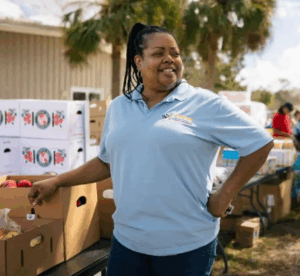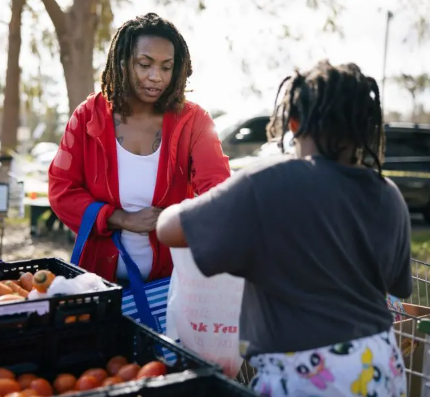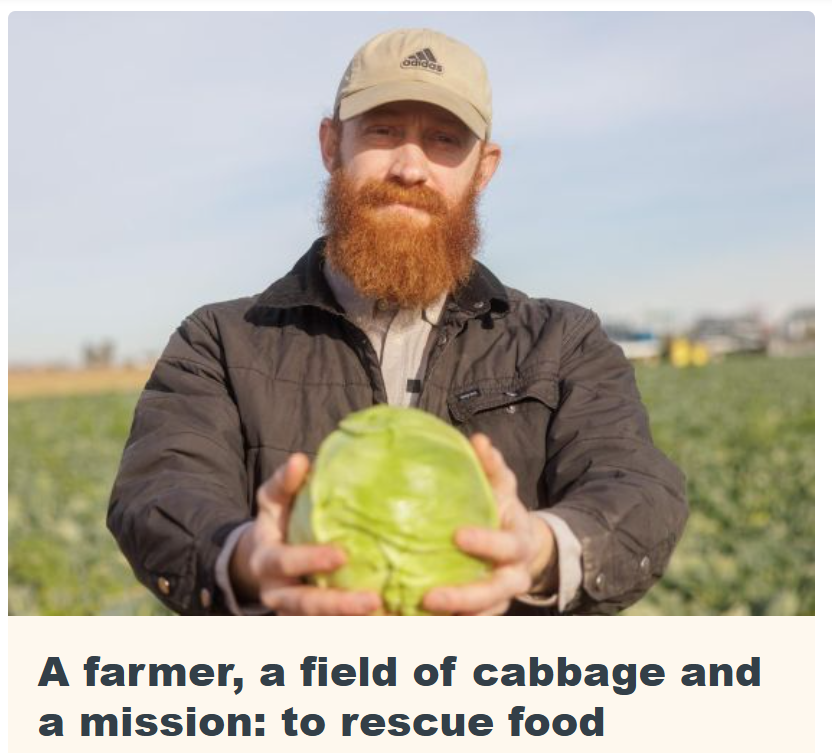One Meal At A Time: Feeding America's Future
National Wellness Month: The Power of Fresh Foods
Feeding America Celebrates Fresh Fruits and Vegetables to Nourish Lives and Help End Hunger
 Health starts with what’s on your plate and Feeding America is celebrating National Wellness Month by accelerating the power of fresh, nutritious food to nourish lives and build healthier communities. Neighbors facing hunger consistently tell Feeding America they need access to fresh, nutritious fruits, vegetables and proteins to help fuel a healthy life.
Health starts with what’s on your plate and Feeding America is celebrating National Wellness Month by accelerating the power of fresh, nutritious food to nourish lives and build healthier communities. Neighbors facing hunger consistently tell Feeding America they need access to fresh, nutritious fruits, vegetables and proteins to help fuel a healthy life. Chronic diseases are exacerbated by poor nutrition, and Melanie Hall, Chief Research and Innovation Officer of Feeding America, says that individuals without access to healthy fresh food incur almost $2,000 more in healthcare costs per year, totaling $70 Billion in unnecessary U.S. spending!
Increasing access to one of the most powerful tools for better health – nutritious food – can support better health outcomes by preventing chronic conditions like diabetes, heart disease and high blood pressure.
“Food banks are among the most trusted voices in communities thanks to decades of committed service to community well-being. Because of our deeply local roots coupled with the power and efficiencies of a national network, Feeding America food banks are uniquely positioned to provide fresh, nutrient-dense foods to tens of millions of people across the country each year, each of whom deserves the food they need to thrive.”— Claire Babineaux-Fontenot, CEO of Feeding America
The Challenge We Face
At a time when the cost of basic needs like groceries and health care are out of reach for millions, the Feeding America network of over 200 food banks and 60,000 faith-based and charitable partners is working to ensure everyone has access to the same nutritious food that supports dignity and wellness we all want for ourselves and our loved ones.
Feeding America Fast Facts:
3.7 Billion
distributed last year
200+
in the Network
60,000
Charitable Partners
50+
on Staff
Feeding America’s Commitment to Healthy Communities
Feeding America is doubling down on its commitment to support healthy communities and provide a nutritious mix of fresh, preferred food through comprehensive initiatives:- Nutritious impact at scale: In the last year alone, the Feeding America network sourced, received and distributed nearly 3.7 billion pounds of nutrient-dense items like produce, protein and dairy.
- Focus on the protein gap: Addressing the shortage of protein donations by safely redistributing donated foods like fresh meat, poultry and seafood through a nationwide, temperature-controlled system — including 13 protein pack rooms, 3,000 vehicles, and over 10 million square feet of warehouse space.
- Nutrition for every plate: With over 50 registered dietitians and more than 200 dedicated nutrition staff across the network, many food banks offer nutrition education, medically tailored groceries or meal programs and partner with local health providers.
- Local food, local care: Partnering with farmers and producers in communities to increase access to locally grown, fresh, nutritious and familiar foods.
- Excess into access through regional distribution: 11 regional cooperatives support the network by rescuing hundreds of millions of pounds of excess produce, quickly and efficiently distributing it nationwide.

Melanie Hall, MS RD
Chief Research & Innovation Officer
As Chief Research & Innovation Officer, Melanie leads the development of Feeding America’s Research and Innovation strategy. With nearly two decades of experience working at the intersection of food insecurity and health, she focuses on developing a deeper understanding of hunger and designing effective solutions for ending hunger in America.
Melanie holds an MS degree in Nutrition Communications from Tufts University and a BS degree in Nutritional Sciences from UC Berkeley. She is also a Registered Dietician with extensive experience at Kellanova (formerly Kellogg Company) and the Public Health Institute.
The Path Forward
Through research-driven innovation and community partnerships, Feeding America continues to evolve its approach to addressing hunger. Under the leadership of experts like Melanie Hall, the organization ensures that its research strategy, program innovation, and systems change work is guided by people facing hunger, network partners, and key stakeholders.
The focus on fresh, nutritious foods represents more than just addressing immediate hunger—it’s about building healthier communities, preventing chronic diseases, and ensuring that everyone has access to the dignity and wellness that comes with proper nutrition.
Listen on Podcast
Did you like your experience?
Please leave us a Testimonial HERE if you have a Google account.
Your word helps get our word out to more people.
Thank you in advance!!



